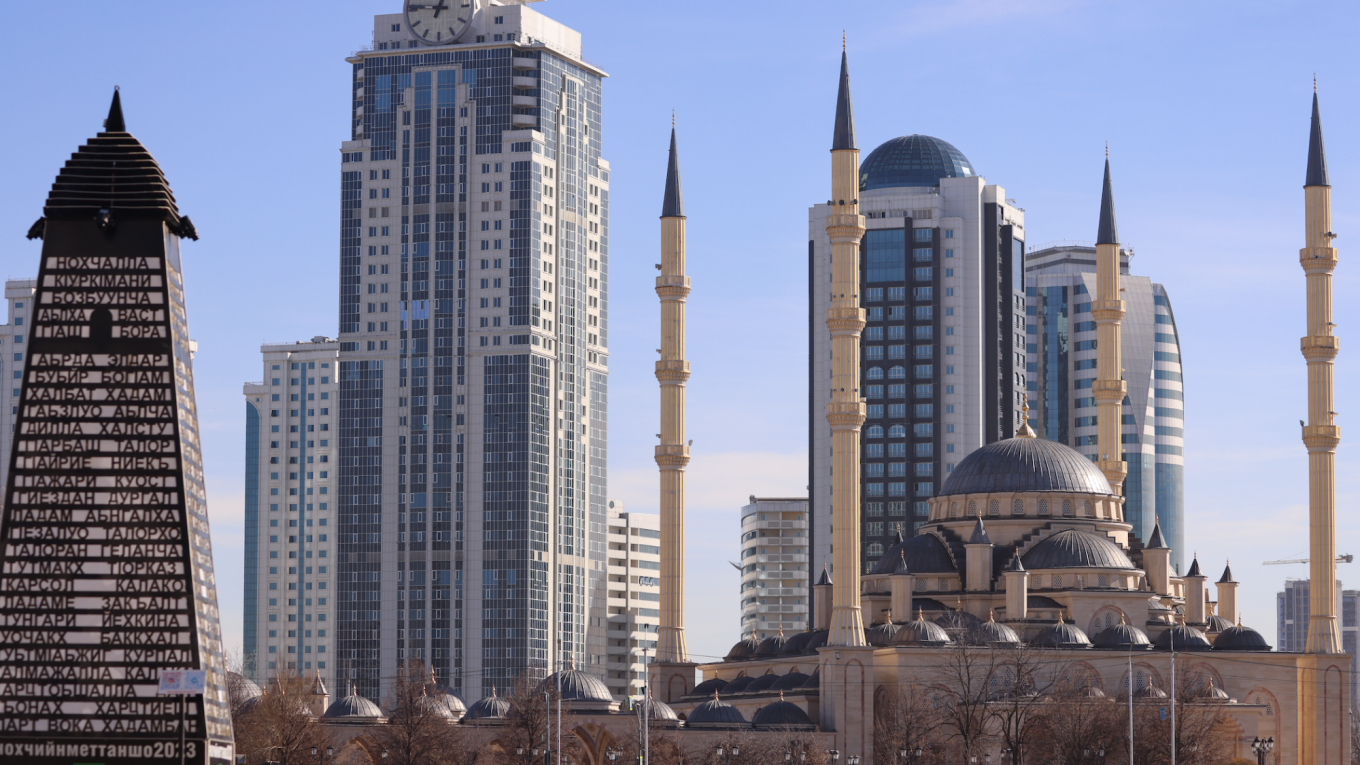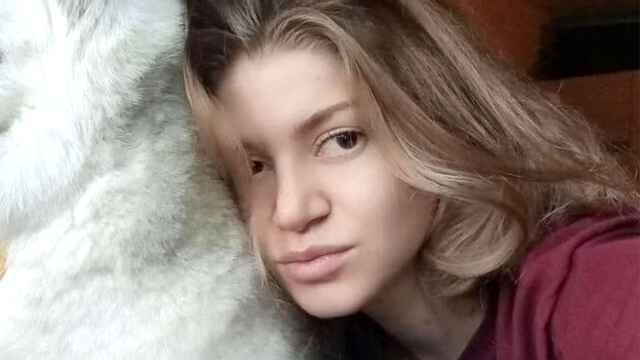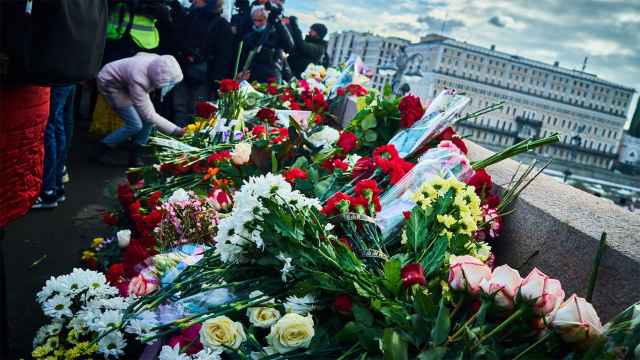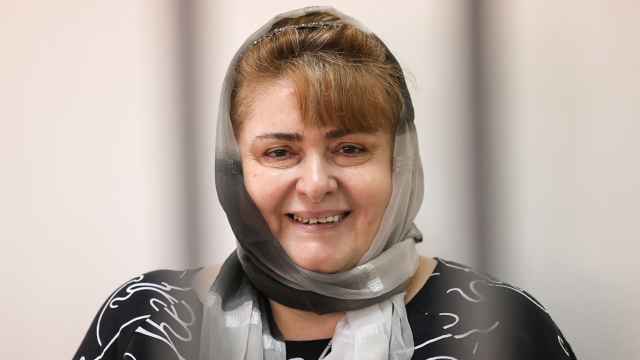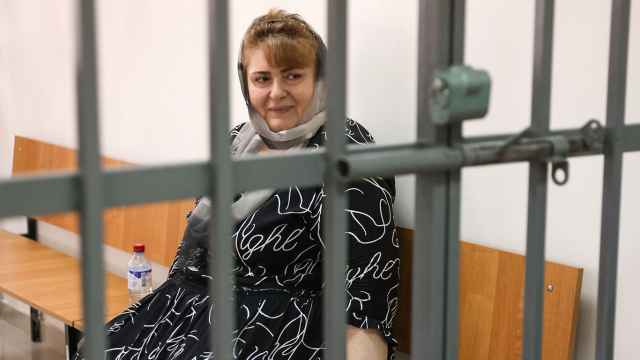Seda Suleimanova, a young woman from Russia’s republic of Chechnya, was detained in St. Petersburg and returned to her home region last summer.
She had fled Chechnya, a conservative, majority Muslim region of the North Caucasus, after her family threatened to kill her for being “insufficiently religious.”
This month, rights activists announced that she may have been killed by her relatives in an “honor killing.”
Activists say Suleimanova’s case underscores the increasingly perilous situation for Chechens attempting to escape persecution — and the impunity with which Chechen authorities increasingly act.
Chechen authorities have abducted and repatriated its citizens from other Russian regions for years, but the practice has intensified amid the war in Ukraine, according to Alexandra Miroshnikova, a representative from the SC SOS human rights organization.
When the war started, “Moscow and St. Petersburg security forces started willingly cooperating with their colleagues from Chechnya and contributing to human rights violations in the region,” Miroshnikova said.
“When a person flees Chechnya because of violence, most often, the local police put him on the wanted list as a missing person. Previously, you could go to the police in Moscow, St. Petersburg or Nizhny Novgorod and ask them to stop looking for you, but this is no longer possible now,” she said. “The person will likely be returned.”
Authorities often facilitate these returns by fabricating criminal charges against the escapees. For instance, Suleimanova was accused of stealing jewelry in Chechnya, a charge she denied.
“[Chechen authorities] came up with a new method for returning a person home. For example, the Chechen police open a case of theft, give the escaped person the status of a witness or suspect, and forcefully return him to Chechnya under this pretext,” Miroshnikova said.
The only option for Chechens facing persecution by their region’s security officials is to leave the country. However, this doesn’t necessarily solve all their problems.
Salman Mukayev fled from Chechnya to Armenia in 2021 after he was accused of homosexuality in his home republic. He faced the risk of extradition back to Russia until recently.
Mukayev told The Moscow Times that his story began with a strange call from the police.
“They called me and asked me to come because some kind of fraud had been committed on my number. I immediately realized there was something wrong.”
He immediately turned off his phone, but the police then contacted his wife and visited his in-laws’ home.
“When the police arrived at my wife’s parents’ house, I realized it was impossible to hide," he said. “I went there. They took me to the police station. They were polite, but not for long.”
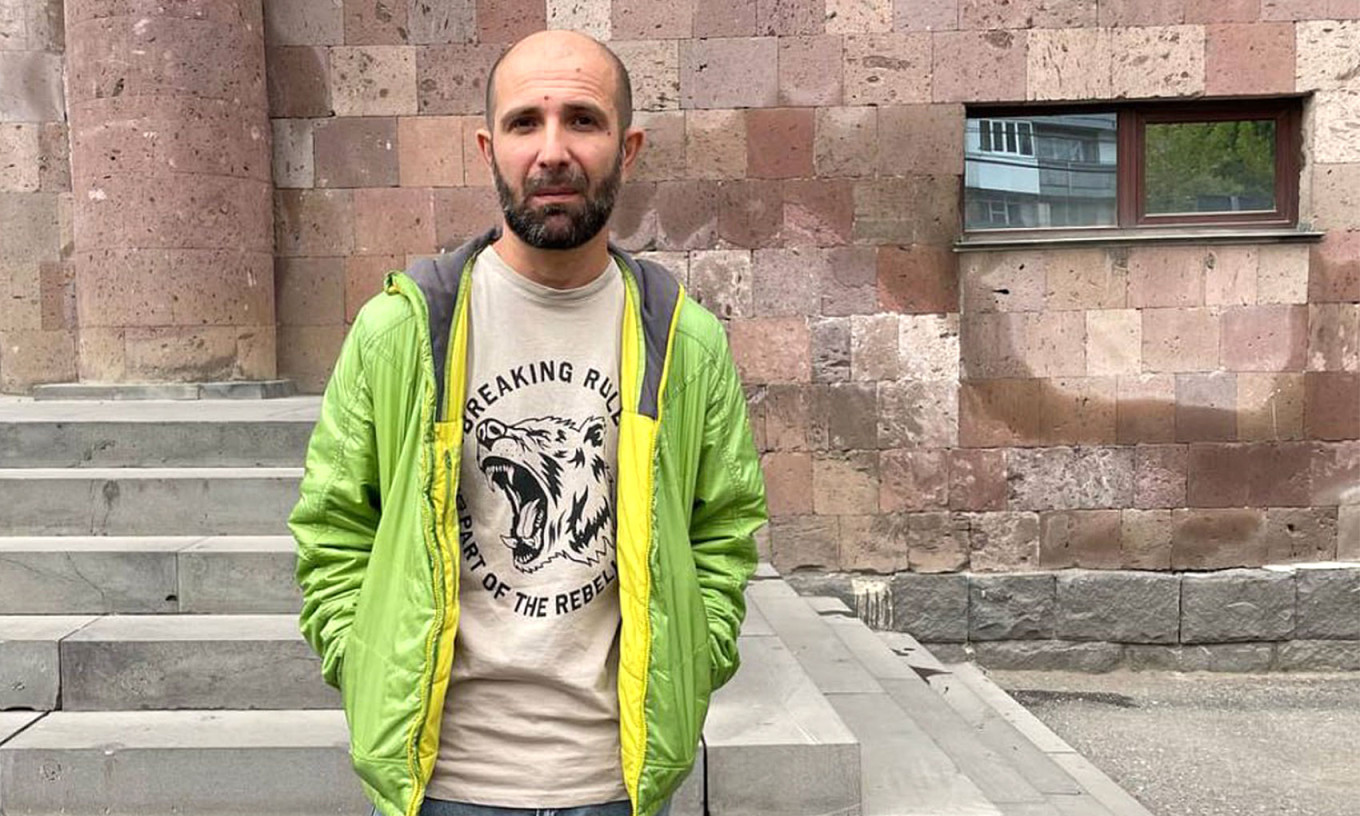
At the police station, he was accused of homosexuality based on his online chat with a friend.
“I didn't understand why they thought I was gay. I always talked to girls. They were able to find out that my friend was a man, but then I immediately blocked him,” he said.
“As a result, the police started to torture me. They choked me and used a stun gun. They wanted to beat some information out of me. But I had nothing to tell them, even under torture, because I didn’t know anything.”
After days of torture, Mukayev said he was coerced into a scheme where he would have to entrap others. The police allegedly proposed that he connect with gay individuals on social media and lure them to a secretly surveilled apartment, where they would then be arrested.
Mukayev was released after agreeing to take part in this scheme. To prevent him from fleeing, Chechen security forces opened a criminal case against him for illegal weapons possession.
“When I agreed to cooperate, this criminal case appeared,” Mukayev said. “They said that at most, I would be given a suspended sentence. It was just so I wouldn’t leave.”
He nonetheless fled by car to Belarus and then to Yerevan, where human rights activists helped him obtain a French visa. In 2021, as Mukayev was preparing to depart for Europe, he was detained due to the active criminal case against him in Russia. Although he was eventually released after questioning, his path to enter the European Union remains blocked.
The Armenian migration service acknowledged that Mukayev's rights had been violated in Chechnya but suggested that he could find safety elsewhere in Russia — a notion Mukayev found impossible.
"In 2020, they told me that if I tell anyone about my torture or collaboration, they will kill me. If I return to Russia now, they will kill me," he said.
Armenia finally granted his asylum request at the end of January.
“I didn’t believe it until the very end. I'm in euphoria. Thanks to everyone who supported me,” Mukayev said shortly after the decision was announced.
For Chechens fleeing persecution, the European Union is one of the few sanctuaries where there is no threat of extradition to Russia. But the long process required to obtain an EU visa poses significant risks, Miroshnikova said.
“There was a case when two brothers who were accused of homosexuality left Chechnya for the Russian city of Nizhny Novgorod,” Miroshnikova said.
In Nizhny Novgorod, the brothers, Salekh Magamadov and Ismail Isayev, applied for visas to travel to Europe. But they were arrested and brought back to Chechnya before the visas were ready. In February 2022, they were sentenced to six and eight years in prison, respectively.
Last summer, Adam Kadyrov, the 16-year-old son of Chechen leader Ramzan Kadyrov, was filmed beating Nikita Zhuravel, a young man jailed for publicly burning the Quran who was brought to Chechnya from the Volgograd region.
After the video was shared on his father's Telegram channel, Adam Kadyrov received nine state awards.
The case of Zhuravel’s beating demonstrated that acts of torture not only go unpunished in Chechnya but are also grounds for official awards.
Kadyrov’s tight grip on power, along with other Russian regions’ readiness to assist in returning Chechen escapees, has created a climate of fear and repression that makes public protest unthinkable.
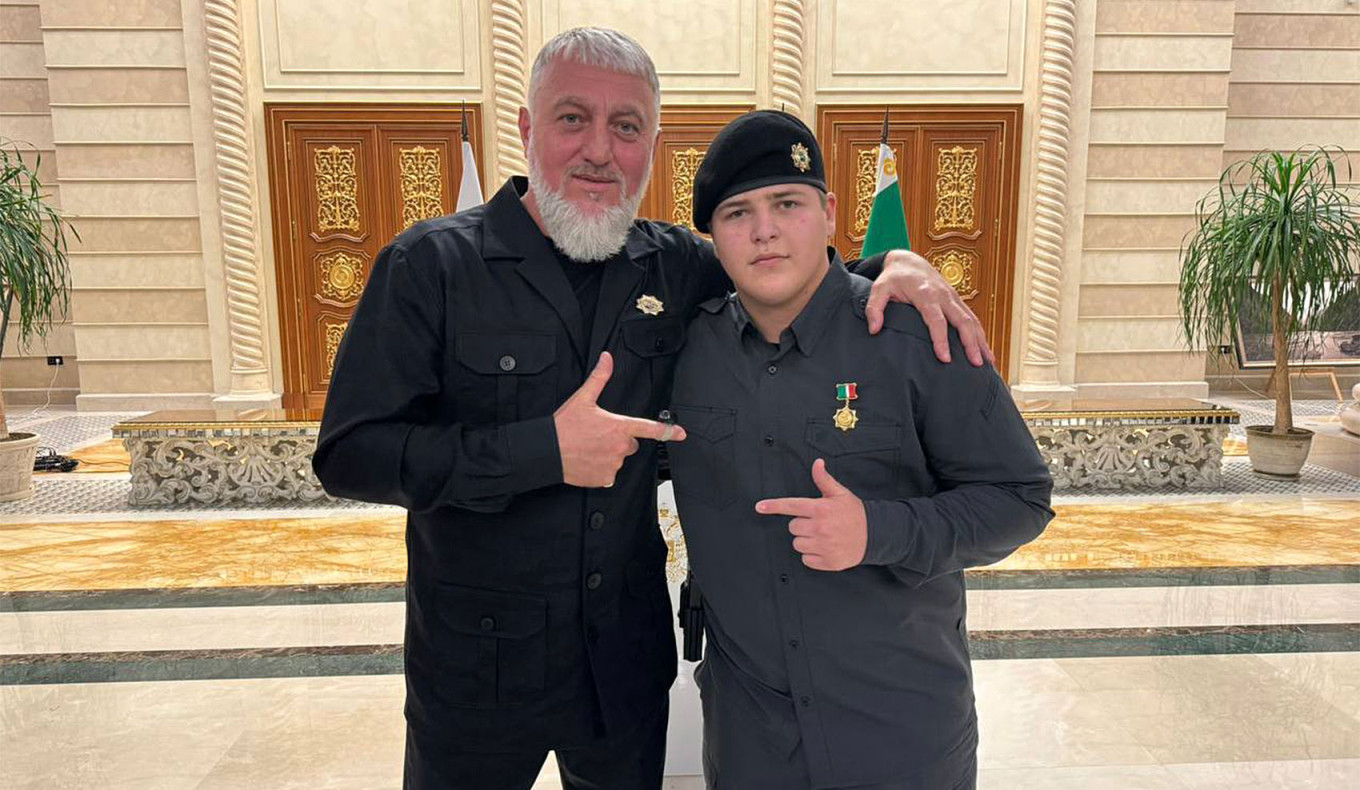
Many Chechens are afraid to speak out against the authorities even after they’ve left the region, said Ali, a native of Chechnya who now lives outside Russia.
Ali agreed to speak with The Moscow Times under a pseudonym and on the condition that his current location would not be disclosed.
“These concerns are justified since, unfortunately, Chechens do not feel free and cannot speak openly on many topics, no matter what country they are in,” Ali said. “There are too many examples when the life and health of a person or his loved ones were under threat even after emigration.”
He said his relatives and friends still in Chechnya were outraged by Zhuravel’s beating but could not speak out due to fears of retaliation.
“In Chechnya, people can have two opinions: the first is the safe one, and no one will voice the second,” he said. “But I know for sure that the situation caused outrage. After all, it didn’t just violate existing laws but also sparked an endless parade of new medals and titles.”
At the same time, journalists and human rights activists working to bring these abuses to light face increasing threats.
Last summer, Novaya Gazeta journalist Yelena Milashina and lawyer Alexander Nemov were brutally beaten on their way to the sentencing of Zarema Musaeva, the mother of a prominent Kadyrov critic whose jailing was widely viewed as politically motivated.
Chechen authorities have not taken the attackers into custody.
“It’s important to understand that the residents of Chechnya live under the pressure of two dictators at once,” Ali said, referencing Kadyrov and President Vladimir Putin.
A Message from The Moscow Times:
Dear readers,
We are facing unprecedented challenges. Russia's Prosecutor General's Office has designated The Moscow Times as an "undesirable" organization, criminalizing our work and putting our staff at risk of prosecution. This follows our earlier unjust labeling as a "foreign agent."
These actions are direct attempts to silence independent journalism in Russia. The authorities claim our work "discredits the decisions of the Russian leadership." We see things differently: we strive to provide accurate, unbiased reporting on Russia.
We, the journalists of The Moscow Times, refuse to be silenced. But to continue our work, we need your help.
Your support, no matter how small, makes a world of difference. If you can, please support us monthly starting from just $2. It's quick to set up, and every contribution makes a significant impact.
By supporting The Moscow Times, you're defending open, independent journalism in the face of repression. Thank you for standing with us.
Remind me later.



